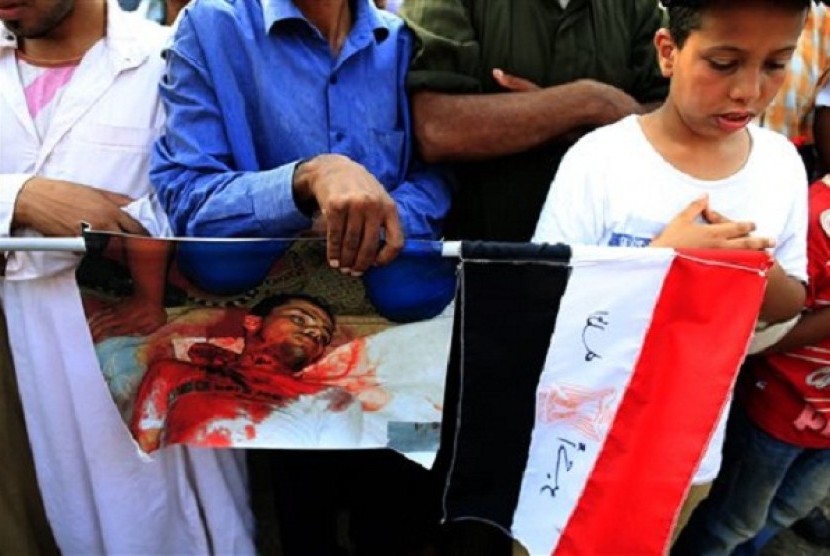REPUBLIKA.CO.ID, CAIRO - Authorities escalated their crackdown Wednesday on the Muslim Brotherhood, ordering the arrest of its top leader for inciting violence this week in which more than 50 people were killed in clashes with security forces.
One week after the military overthrew President Mohammed Mursi and began moving against his Muslim Brotherhood movement, prosecutors issued a warrant for the arrest of the group's supreme leader, Mohammed Badie, as well as nine other leading Islamists.
According to a statement from the prosecutor general's office, they are suspected of instigating Monday's violence outside a Republican Guard building that grew into the worst bloodshed since Mursi was toppled.
Members of the Brotherhood and other Islamists have denounced Mursi's ouster and have refused offers by the military-backed interim leadership to join any transition plan for a new government. They demand nothing less than Mursi's release from detention and his reinstatement as president.
Foreign Ministry spokeman Badr Abdel-Atti gave the first official word on Mursi in days, saying the ousted leader is in a safe place and is being treated in a "very dignified manner." No charges have been leveled against him, Abdel-Atti said.
"For his own safety and for the safety of the country, it is better to keep him ... otherwise, consequences will be dire," he added.
Thousands of Muslim Brotherhood supporters are continuing a sit-in at the Rabaah al-Adawiya Mosque near the Republican Guard building that was the site of Monday's clashes that killed 54 people, most of them Mursi supporters. The Islamists have accused the troops of gunning down protesters, while the military blamed armed backers of Mursi for provoking its forces.
News of the arrest warrants did not surprise the protesters, who saw the move as an attempt to pressure the group's leadership to end the demonstration.
"We expected it," said Ayman el-Ashmawi. "Even if they arrest the biggest number of Muslim Brotherhood members, we want to say that the Muslim Brotherhood will leave this square only over our dead bodies — or the return of Dr. Mohammed Mursi."
After a week of violence and mass demonstrations, Egyptians were hoping that Wednesday's start of the Muslim holy month of Ramadan will significantly calm the streets. The sunrise-to-sunset fast cuts down on daytime activity, although there are fears of unrest at night.
The warrants highlight the armed forces' zero-tolerance policy toward the Brotherhood and other Islamists. The military already has jailed five Brotherhood leaders, including Badie's powerful deputy, Khairat el-Shaiter, and shut down its media outlets.
The military-backed interim president, Adly Mansour, issued a fast-track timetable Monday for the transition. His declaration set out a seven-month timetable for elections but also a truncated, temporary constitution laying out the division of powers in the meantime.


